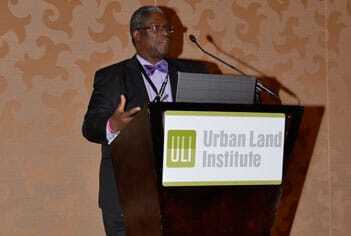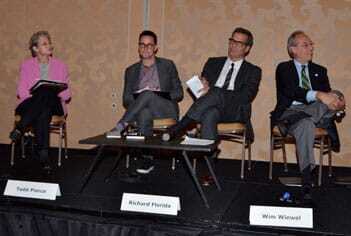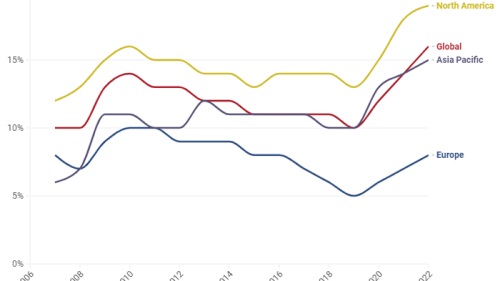While innovation is often associated with Silicon Valley’s high-tech industry or New York City’s financial giants, programs like Google Fiber and incubators are bringing growth to cities like Portland and Kansas City, according to panelists at the 2013 ULI Spring Meeting in San Diego.
“It’s happening in all kinds of cities,” said ULI visiting fellow Richard Florida, moderating a panel called “Cities are the Next Innovation Engines.” He added, “Look at Audible returning to Newark,” referencing Amazon.com’s audibook division, which is a participant in the Newark Renaissance program.
“We have to innovate because we have to solve problems,” said Sly James, mayor of Kansas City, Missouri.
“We’re not trying to attract smokestacks from another city. Those days are gone,” said James. “We’re trying to create a place that attracts entrepreneurs.”
James said that the 2011 launch of Google Fiber—a fiber-optic network with speeds of up to 1 gigabit per second—helped change the perception of the region. Programs such as Startup Village offer 90 days of rent-free housing to companies wanting to start in or relocate to the area. Another program, Launch KC, pairs startups with companies that already have vacant office space.
He acknowledged that his city is behind on things like transit, but the population in the downtown area is increasing and is becoming more of a destination, playing host to events like the Big 12 basketball tournament.
James said his goal was to attract ten companies with $3 million in annual revenue and so far he has six. He also hopes some these programs can be duplicated in other cities, working with the U.S. Conference of Mayors.
Wim Wiewel, Portland State University’s president, agrees that cities are far from obsolete, as a 1991 Newsweek cover story asked. Portland State is actually the largest university in Oregon and is redefining the idea of a “commuter campus,” with half a billion dollars in economic development. More Urban Land coverage of Portland State.
“We account for four of the busiest transit stops in the city,” said Wiewel. “Less than 25 percent of the students are single-car riders.”
Wiewel said the school is also investing in local engagement and sustainability, launching a certificate program in craft brewing, and incubating MyStreetGrocery, a mobile grocer and pop-up market that delivers healthful food to underserved Portland neighborhoods.
Todd Pierce, executive vice president of Salesforce.com, said his company is also trying to give back to their community. Through a “1/1/1” program, 1 percent of employees’ time, 1 percent of the company’s equity, and 1 percent of the product are donated.
Unlike other tech companies, 85 percent of Salesforce.com’s offices are in cities, according to Pierce. One of their largest offices is roughly 200,000 square feet (18,580 sq m) in San Francisco in a former Yellow Pages office.
Pierce said his company’s strategy of city-based offices is key to attracting innovative talent. “We don’t need a lot of people, but each person really matters.”







